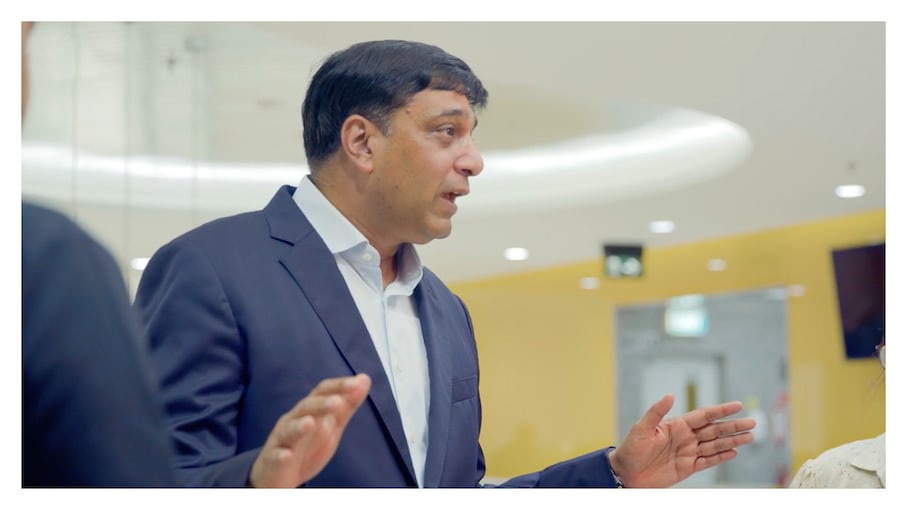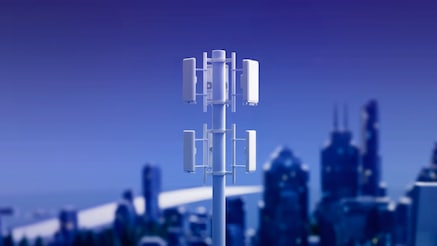The master collaborator
How Vikram Sinha is employing the spirit of Gotong Royong
to transform the digital landscape of Indonesia.
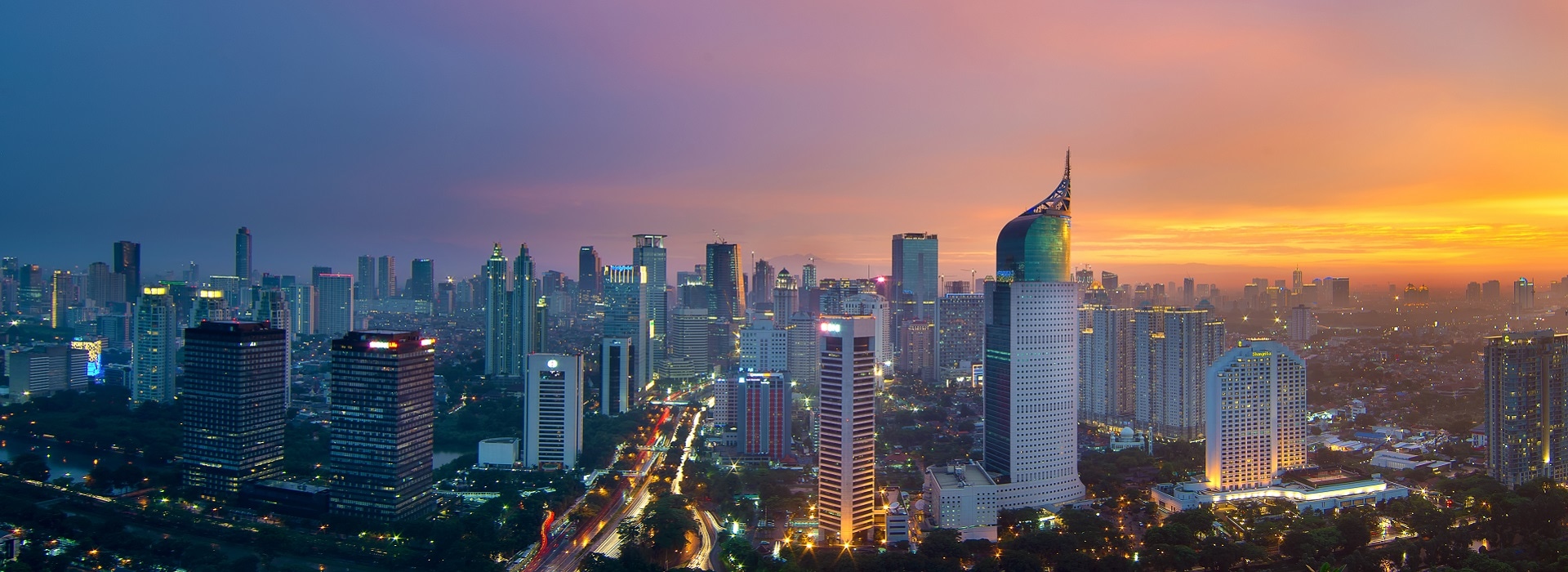
2018 was a difficult year for the Indonesian telecoms industry. At short notice, the government brought in a new mandatory requirement for all prepaid SIM card owners to register their identities. In a country with a population of 275 million people, this posed significant financial and administrative issues for Indonesia’s telecoms companies.
Meeting challenges with smiles
Indosat Ooredoo, now known as Indosat Ooredoo Hutchison (IOH), was particularly affected, losing 25% of its value in 2018. Bold action was required to reverse its fortunes. Indosat Ooredoo needed a leader that understood, not just the organization and industry, but the unique landscape and requirements of the country itself. When assigned as Chief Operating Officer at Indosat Ooredoo, Vikram was well aware of what Indosat meant to Indonesia. “Everyone in Indonesia knows Indosat and I was given a mandate to turn around the company’s operations within three years,” recalls Vikram. “To bring the glory back to Indosat, which was a really prominent brand in Indonesia.”
Vikram has an infectiously positive outlook, one which sees him meet tough times head on. And this attitude rubs off on those he works with.
“For me personally, it all starts with seeing smiles on the people around you. What really gives me energy is when I’m able to give back to the people around me.”
Vikram set to work. Although he describes it as “one of the most challenging assignments” of his career, he had a clear vision of what needed to be done. Indosat Ooredoo had to make a break from traditional telecoms models and embrace new technologies. Only then could they achieve sustainable growth.
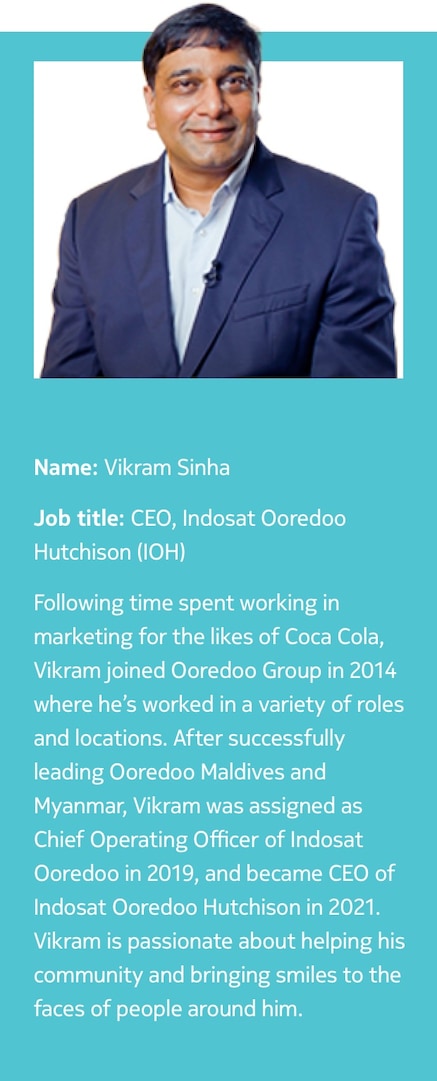
Strength in numbers
Vikram knew that he couldn’t do it alone. He needed to rebuild trust in the Indosat brand – among customers, shareholders and employees. This would take time and patience.
“Three years is not a short journey”, Vikram says. “So, it took time for the analysts and the market to accept that our growth was sustainable.”
When Indosat Ooredoo launched the ‘Unlimited’ packages in 2017, the product brought incremental growth to the customer base and became the company’s top revenue-generating product. One of the hardest decisions that the company took was to stop its Unlimited product because in the longer term, it would not have been sustainable.
Vikram recalled that when the company decided to pivot from Unlimited, many were skeptical. “Everybody was behind the same vision, the same plan to do the right thing for the company. This is the reason why we were able to do many things, however difficult they were.” However, over time it became clear that Vikram and his team made the right decision and were on to something. “Key metrics were showing we were growing beyond industry trends. If industry growth was at 2%, we were consistently at 12-13%.”
Just the beginning
The results of the actions taken by Vikram and his team were hugely promising. Customer satisfaction and NPS scores rocketed. And in 2021, Indosat Ooredoo was named the sixth fastest growing telecom brand in the world, with the company’s value increasing by an incredible 31% in 2020.
It’s fair to say that Vikram had succeeded in his turnaround challenge. In fact, even a leader as humble as Vikram admits that “when we look back, what we achieved is amazing.” But the story doesn’t end there – in fact, Indosat Ooredoo and Vikram were just getting started. To give some context to his next move, it’s helpful to understand a little about the values Indonesians hold dear.
A country built on sharing
As well as being a large and potentially valuable market, Indonesia also has a unique collective ethos: Gotong Royong. “It’s the spirit of Indonesia, and it’s something I’m particularly passionate about”, says Vikram. “It means collaboration, helping each other. If you go to any village in Indonesia, you will see the community really supporting each other.”
Gotong Royong clearly plays a central role in Vikram’s leadership style, which is people-led and collaborative in its approach. “I need to ensure that I provide a very good employee experience,” he explains. “I want my people to be champions for our cause, to help guide our journey.” When Vikram speaks about his role, it’s never about him as an individual – he speaks about a collective, a shared purpose.
This spirit extends outwards, too. Vikram doesn’t just feel a duty to his shareholders, customers and employees, he is passionate about helping the country.
"For us at IOH, we are very clear that we want to enable the whole digital economy and support Indonesia. And we want to do it in a collaborative manner, so partnership is important to us.”
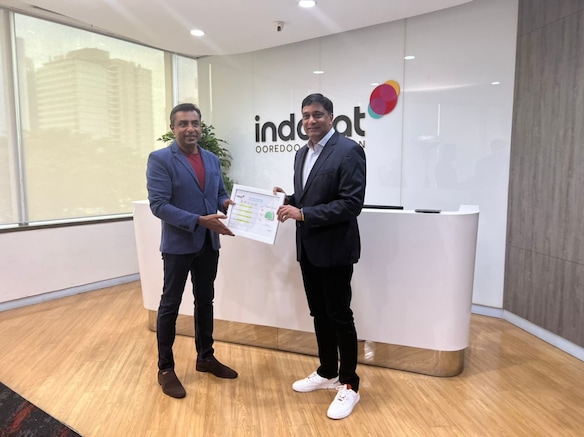
A perfect fit?
On January 4, 2022, Ooredoo Group and CK Hutchison announced the merger completion of their Indonesian businesses, Indosat Ooredoo and Hutchison Tri Indonesia – with Vikram being appointed as the CEO of IOH.
With Vikram having put the company back onto a strong footing, the January 2022 announcement that Indosat Ooredoo and Hutchison Tri Indonesia were to merge and become Indosat Ooredoo Hutchison (IOH) came as a huge shock. Why would Vikram, having successfully revitalized the company’s fortunes, run the risk of diluting its brand? After all, mergers are not without risk. Bringing two cultures together can take time, and a lot of money – with no guarantee of maintaining market share, let alone growing it. But seen through the lens of Vikram’s vision on partnerships and collaboration, it was a natural step forward.
And as surprising as it may have seemed to the outside world, mergers had been often rumored within the industry – as Vikram was all too aware. “From the time I landed in early 2019, I kept hearing rumors that this company is merging with this company. I used to find it like a dance floor, with people looking at each other from across the room. So, I used to tell my team not to worry about it until something concrete happened.”
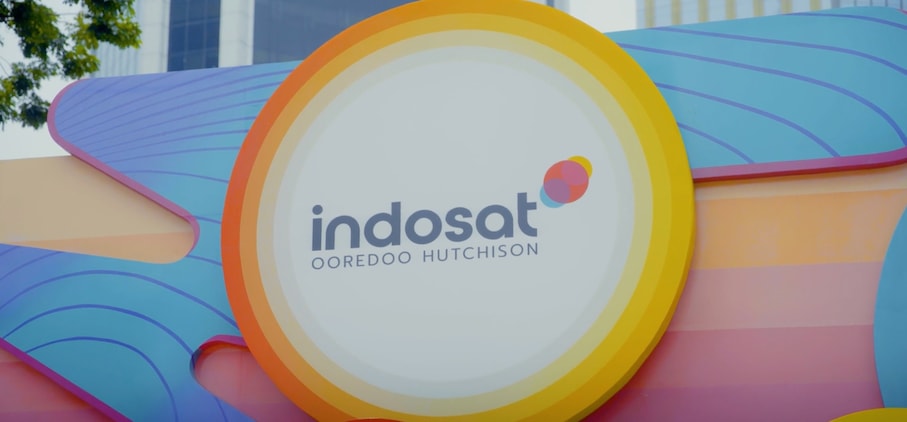
Scaling new heights
Once the merger took place, it became clear that it actually made a lot of sense for Indosat Ooredoo Hutchison. The company grew its customer base from 60 million to 100 million as IOH. And, according to Vikram the successful turnaround of Indosat Ooredoo actually made the merger easier to navigate. “We felt more confident because we were merging from a position of strength, so we could grow in scale with confidence.”
Perhaps most importantly of all, Vikram believed that the merger was good for Indonesia and was the embodiment of its collaborative spirit. “Indonesia is a large country, and it needs a strong merger to help deliver the country’s digital vision”, he explains. “The most important thing for us was that the merger was good for Indonesia, the country.”
Working with like minds
With IOH only being formed in January 2022, it is still in its early days. Nevertheless, the signs are extremely positive. IOH has forged partnerships with leading technology providers including Nokia, Google, and BDx – and Vikram is in no doubt that the merger is one of the key drivers. “Our partners see the scale of the company and they want to work with us.”
With Indonesia on course to have the world’s 10th largest GDP by 2030, working with IOH in such a potentially lucrative market makes business sense. But Vikram is determined to work with partners that share his vision: “We are very clear”, he explains, “once we tell them they will be helping the country, they are excited to join us.”
Developing Indonesia’s next generation of innovators
IOH’s partnerships are helping Vikram deliver better services to IOH’s customers and are helping in his mission to deliver world class digital telco experiences, connecting and empowering every Indonesian.
IOH has now brought 5G to eight Indonesian cities (and counting). Whenever they connect somewhere new, Vikram isn’t only thinking in terms of raw speed, he’s thinking about the opportunities the technology brings to the community – like the marketplace IOH is trying to create to help small and medium enterprises (SMEs).
“We have created platforms – we have just started the journey and we are collaborating with like-minded people to try and help SMEs access cutting edge technology.”
One example of this is the Nokia 5G Experience Centre, which sees IOH working with Nokia, Sepuluh Nopember Institute of Technology and the University of Oulu. It’s designed to help local digital talent develop innovative new technology, and it’s something Vikram is particularly proud of. Now he’s thinking big. “We have a vision for how some of this talent can not only serve Indonesia but can serve the globe.”
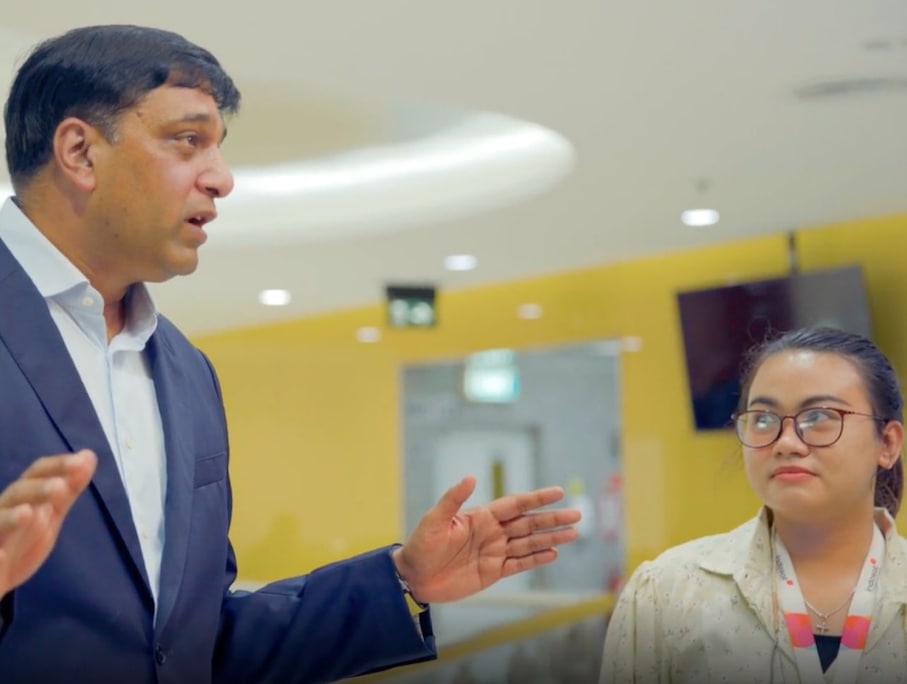
What’s next?
Vikram is understandably proud of what IOH have achieved already. He has stayed true to his values of openness and “doing good to do well”. This has helped him, and his organization, succeed by almost every conceivable business metric. But Vikram sees a bigger picture: “If the country is doing well, the whole ecosystem works for you – so the first sign of success to me is when the country’s entire digital economy is healthy.”
As usual, when asked about his future, Vikram’s focus is not on personal advancement, but how he can be as much help as possible to those around him.
“I’m humbled by the fact I’ve been able to create some impact in Indonesia and in the industry. My team and I are all aligned to leave a legacy, to create a positive impact in the region. So, this is where our focus is. But as for the next decade? Who knows. I want to really bring value to the community and to people around me.”
Vikram is too modest to say it himself, but it takes a special leader to be able to save a business, navigate a merger and then work seamlessly with others, all while ensuring your brand’s unique values are adhered to. But Vikram is a unique leader, in a unique country. No wonder some of the world’s biggest organizations are so keen to work with him, and for Indonesia.
Vikram’s three tips for collaborative, community-focused leadership:
Tip 1:
Know your strengths
Double down on your core business. Know your market, and make sure you do the simple things well. Only after that can you talk about diversifying and finding new revenues.
Tip 2:
Follow your customers
Always make sure you know your customers. Take the time to find out what they want and need from you.
Tip 3:
Look after your people
Your people are your biggest asset. If they are connected to your mission, it will work wonders for you – so try and make every employee feel valued.
Break your own boundaries
Connect to Nokia’s solutions
Learn about the technologies helping IOH and its partners deliver Indonesia’s digital future.
